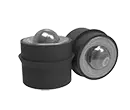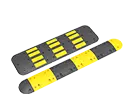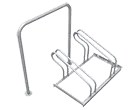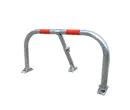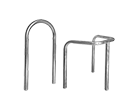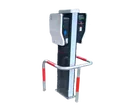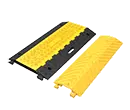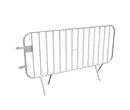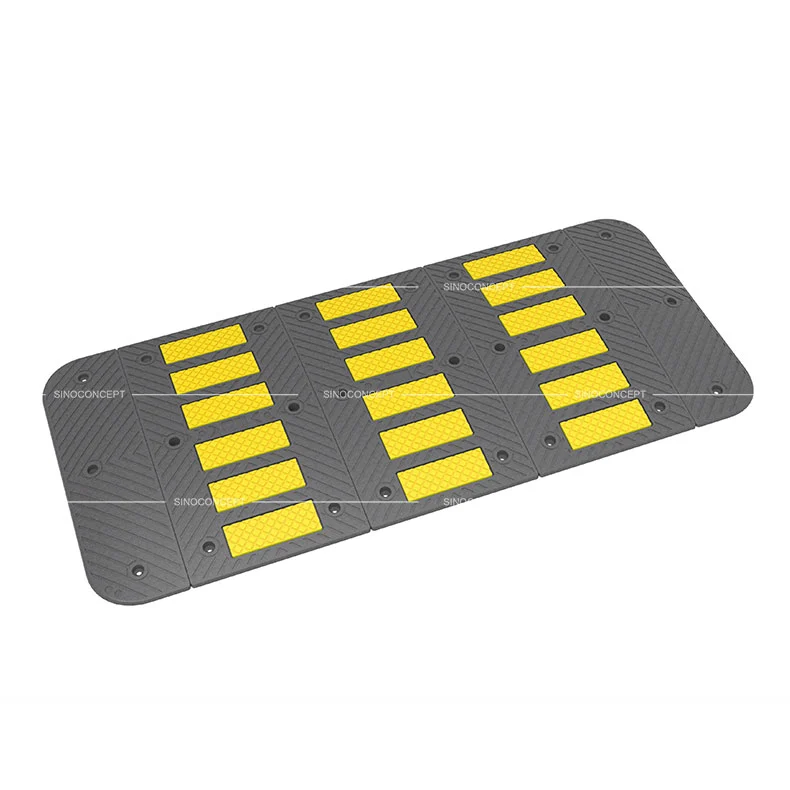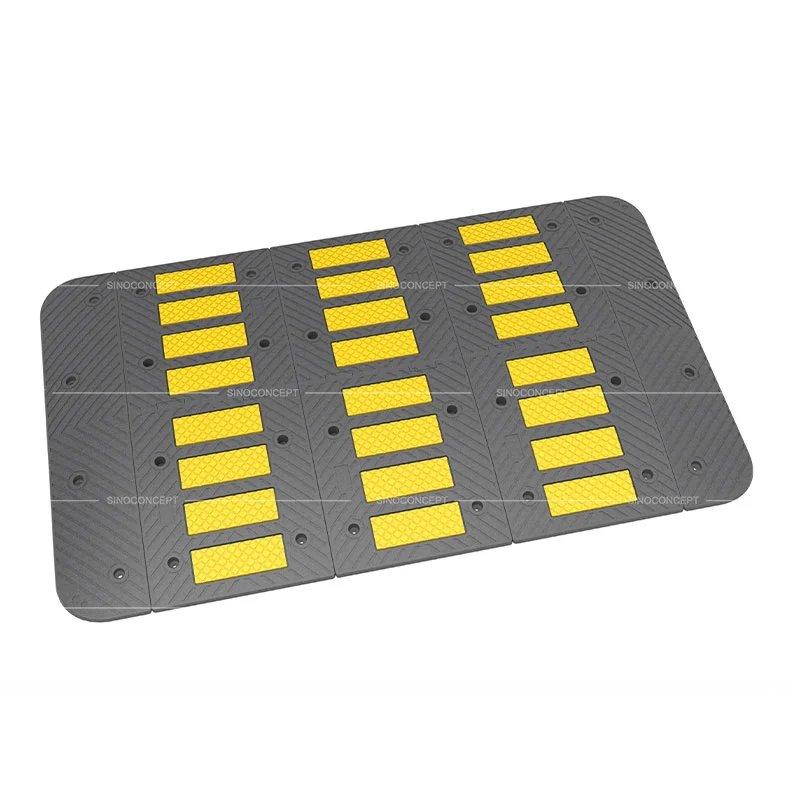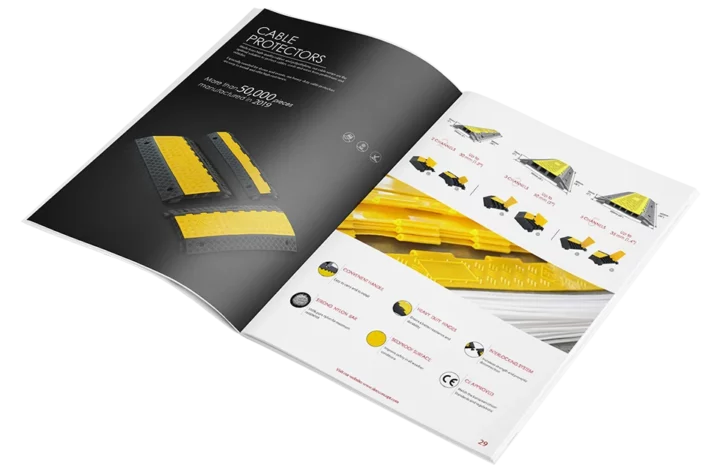Speed bumps and speed humps
Speed bumps and humps are essential private traffic calming measures to slow down vehicles in low-speed residential areas. We designed our road bumps and humps to be installed on parking areas and roads to reduce drivers’ speeds and improve pedestrians’ safety.
-
Speed bump 5 cm
$22.10 – $28.70 -
Speed bump 7 cm
$31.40 – $44.50 -
One-part speed bump
$3.30 – $35.90 -
Speed hump 3 cm
$4.90 – $13.00 -
Speed hump 5 cm
$7.10 – $27.70 -
Speed hump 7 cm
$12.60 – $45.50
| Picture | Model | Speed Reduction | Built-in Channel | Ideal For |
|---|---|---|---|---|
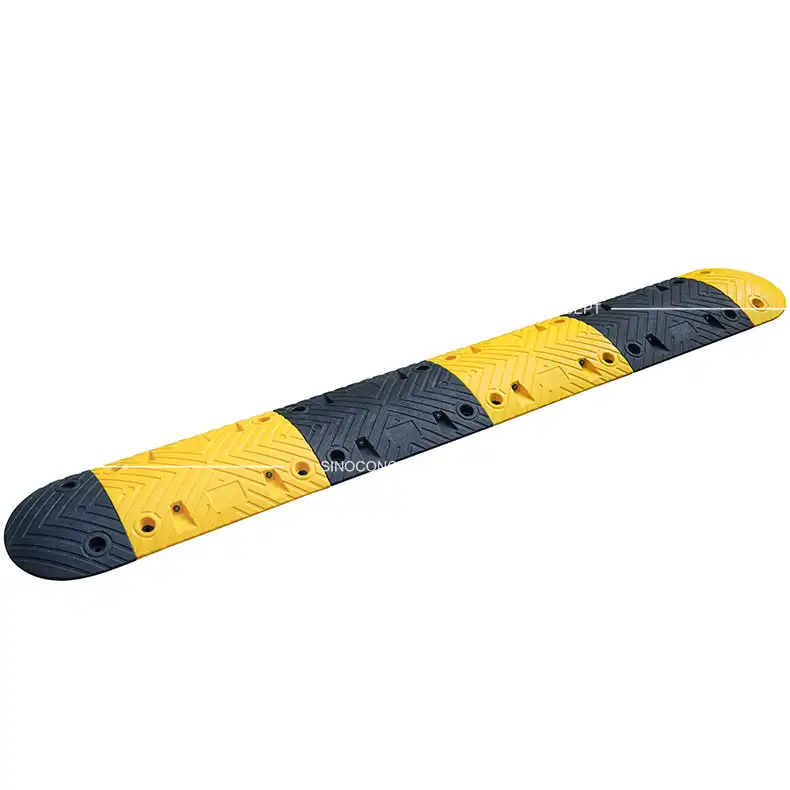
|
Speed
Bump
5 cm |
Approx. 9 mph (15 km/h) |
|
Car parks, private roads, site entrances. |
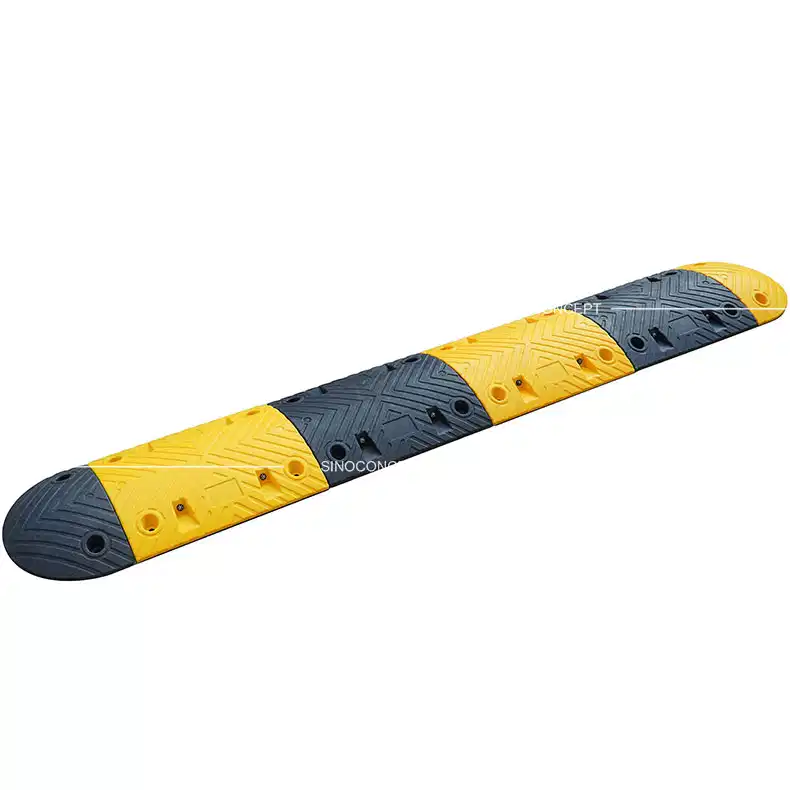
|
Speed Bump 7 cm |
Approx. 6 mph (10 km/h) |
|
Industrial areas and construction sites. |
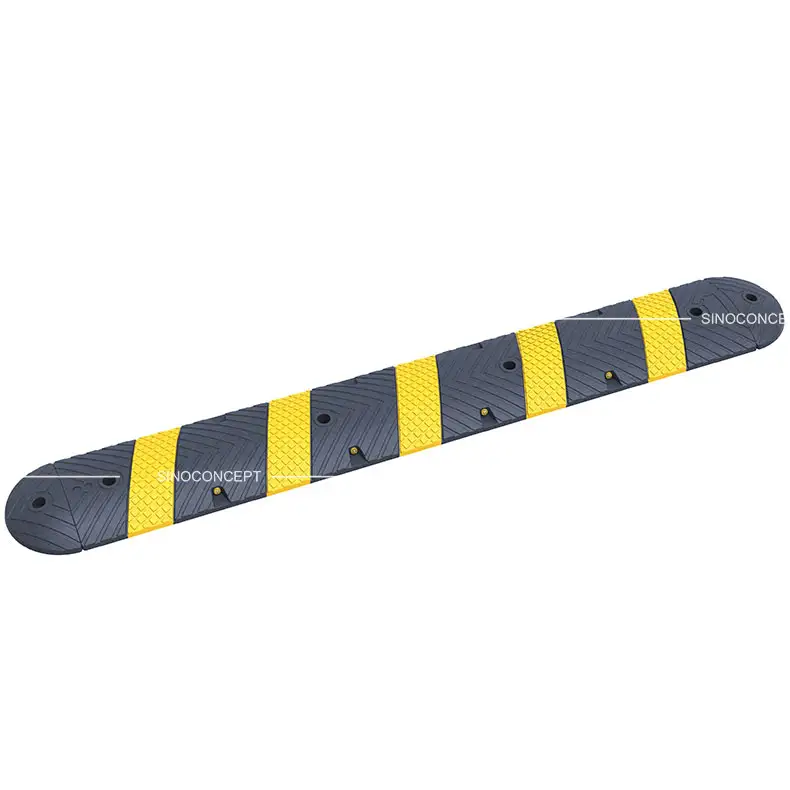
|
One-part Speed Bump |
Approx. 9 mph (15 km/h) | Ø 30 mm (1.18 in) | Private roads, car parks, and industrial areas. |
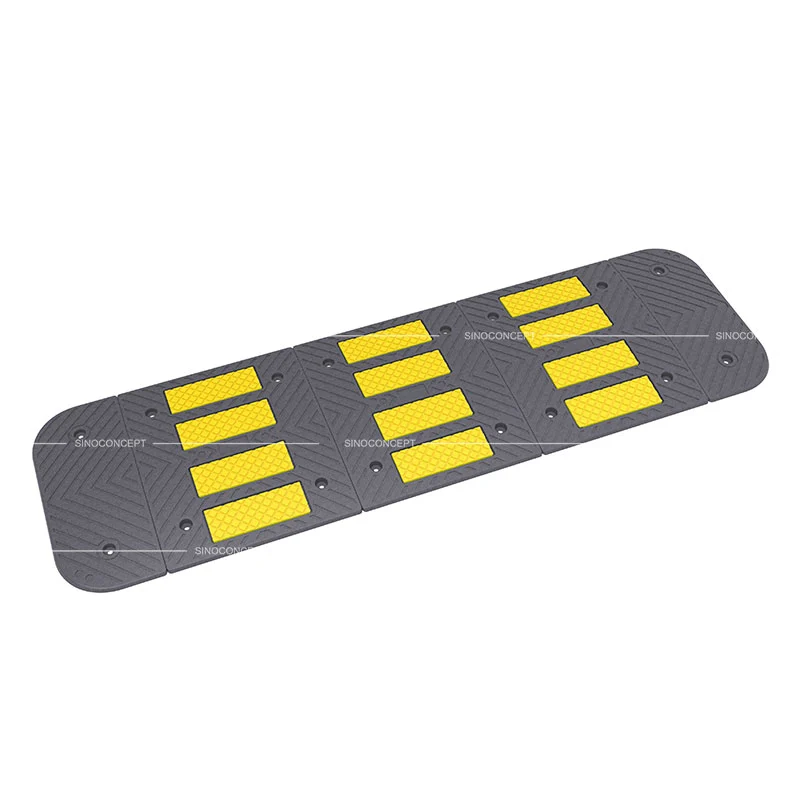
|
Speed Hump 3 cm |
Approx. 21 mph (35 km/h) | × | Large parking lots, high-traffic commercial areas. |
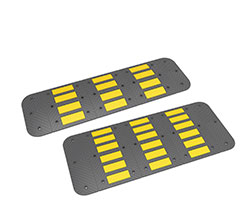
|
Speed Hump 5 cm |
|
Ø 30 mm (1.18 in) | Logistics centres, truck depots, warehouse loading bays. |
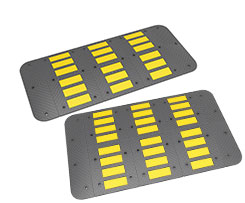
|
Speed Hump 7 cm |
|
Ø 45 mm (1.77 in) | Logistics centres, truck depots, warehouse loading bays. |
What are speed bumps and humps?
Speed bumps and speed humps are traffic calming devices designed to reduce vehicle speeds.
Speed bumps are shorter and more pronounced, typically used in private areas where a sharp speed reduction is needed. Speed humps, being wider and gentler, offer a more gradual speed reduction and are suitable for both private and public areas.
Key Features of Our Speed Bumps and Speed Humps
Our speed bumps and humps are built for durability, ease of installation, and long-term use as traffic calming measures in various traffic conditions.
Reliable Traffic Speed Reduction
Speed bumps and humps are specifically designed to slow vehicles down to a safe speed, typically between 6-21 mph (10-35 km/h), depending on the height and profile.
Durable and REACH-Compliant Materials
Made from a tough plastic-rubber composite, our sleeping policemen resist wear and deformation under heavy use. The material is low maintenance, REACH compliant, and produces almost no odour, even in enclosed areas.
Interlocking Design and Fast Installation
Our speed bumps and humps feature a built-in interlocking system with male and female connectors that prevent movement and ensure secure alignment. This design allows for quick and easy installation with supplied mounting hardware, offering long-lasting stability under heavy traffic.
High Visibility and Safety
All our speed bumps come with integrated glass bead reflectors for enhanced visibility in low-light conditions. This helps drivers spot the bumps in advance, reducing the risk of accidents. The anti-slip surface further improves safety for both vehicles and pedestrians.
Variants Available in This Range
Our speed bump and hump collection includes several product types and dimensions, making it easy to find the right solution for your needs.
Speed Bumps 5 cm & 7 cm
Our speed ramps feature a modular design and are suitable for private roads, car parks and controlled areas requiring sharp speed reduction.
- Available in standard (up to 20 tons/axle) and heavy-duty (up to 40 tons/axle) versions
- Built-in cable channel on heavy-duty models (Ø 30 mm or Ø 35 mm, depending on height)
- Glass bead reflectors for visibility in low-light conditions
One-Part Speed Bump
Our one-part speed bump provides a cost-effective, easy-to-install solution for fast and reliable speed control in low-traffic areas.
- 1830 mm single-piece middle section with 150 mm end caps
- Two Ø 30 mm built-in cable channels for cable protection
- Glass bead reflectors for visibility during the day and night
Road Humps 3cm & 5 cm & 7 cm
Speed humps are wider and more gradual than speed bumps. Similar to speed tables, they help slow traffic smoothly, making them suitable for areas with low speed limits, such as shared roads, schools, and pedestrian crossings.
- Available in 3 cm, 5 cm and 7 cm heights to suit different vehicle types and speed targets
- Widths include 600 mm, 900 mm and 1200 mm, depending on the model
- Two built-in cable channels on 5 cm and 7 cm models (Ø 30 mm or Ø 45 mm, depending on width)
Why Choose Sino Concept for Your Speed Bumps and Road Humps Needs
At Sino Concept, we specialise in supplying reliable traffic calming solutions for professional use. With years of experience in the industry, we provide products that combine quality, performance and value for money. We offer:
- Competitive factory-direct pricing with no middlemen
- High load capacities suitable for both standard and heavy-duty use
- Quick and stable installation with integrated interlocking systems
- REACH-compliant materials for safe, environmentally responsible use
In addition to speed bumps and road humps, we also offer a wide range of other traffic management solutions to meet your specific needs:
- Wheel Stops: Often used alongside speed bumps in car parks to define parking bays and prevent overrun.
- Cycle Racks: Secure and efficient storage solutions for bicycles, promoting environmentally friendly transport.
- Lockable Parking Barriers: Ideal for securing parking spaces and controlling vehicle access in both private and public areas.
- Lamp Post Protectors: Durable protectors to safeguard lamp posts and other infrastructure.
- EV Charger Protection: Designed to protect electric vehicle charging stations from potential damage.
Get in Touch For Your Business
Looking for a reliable speed control solution? Our speed bumps and road humps are built for long-term performance in car parks, worksites and industrial areas.
Contact us today to request a quote or discuss your project. Our team is ready to assist!


